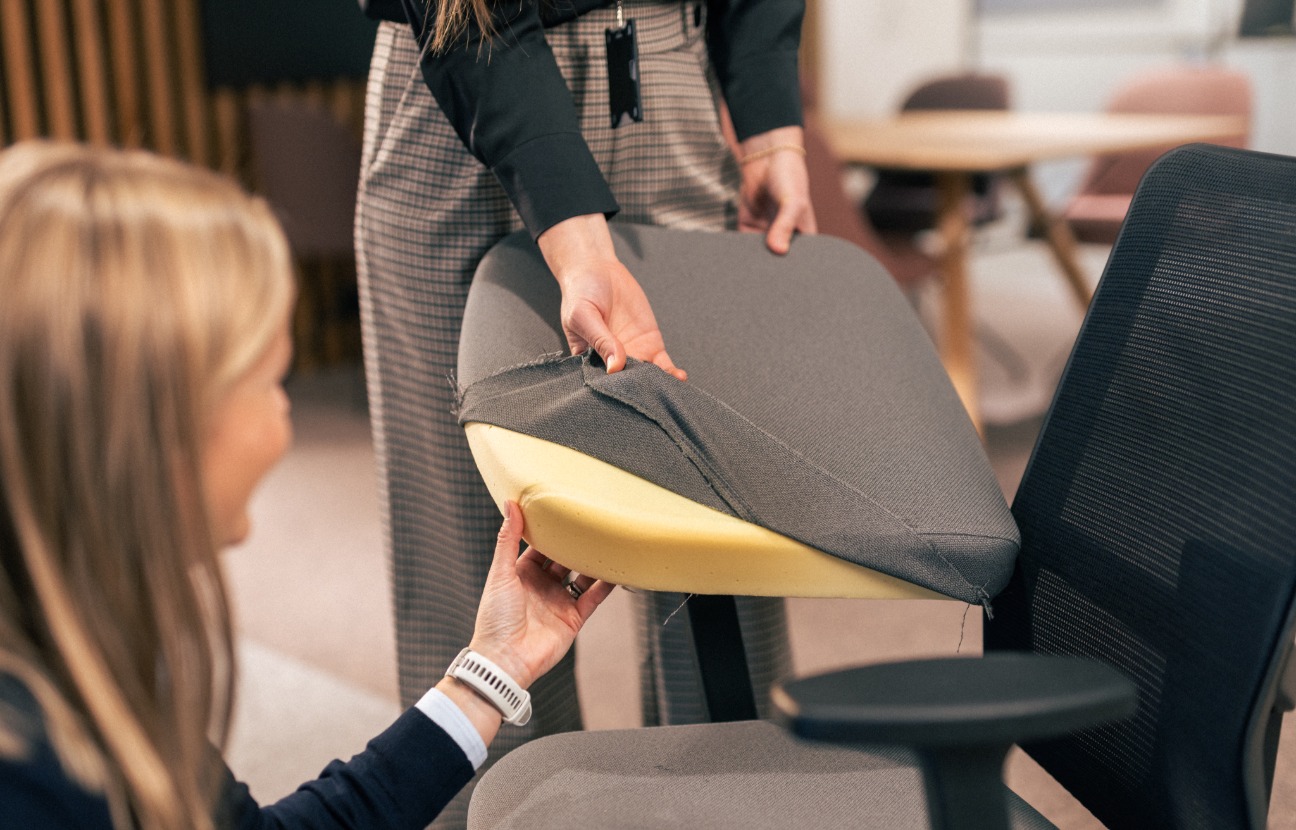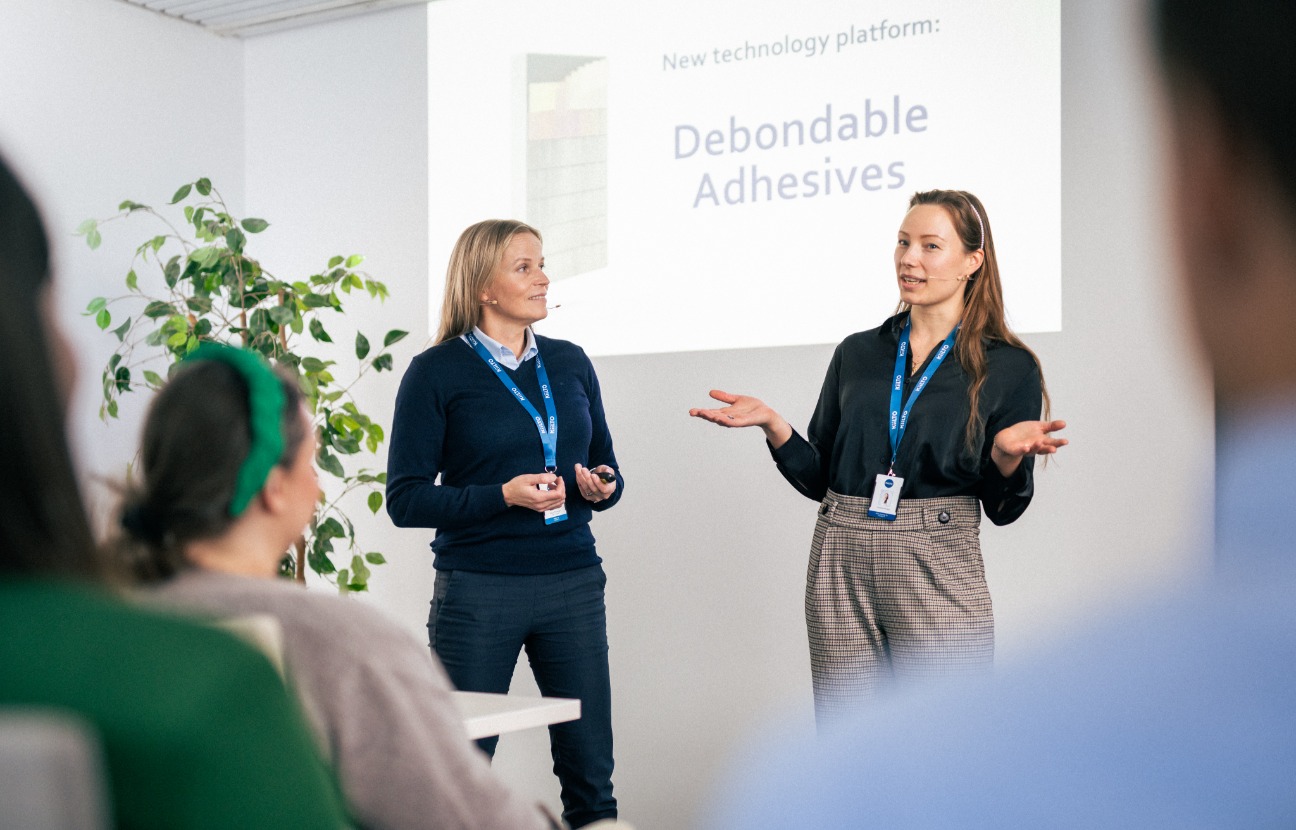Breakthrough Adhesive Makes Recycling and Reuse Easier Than Ever
How a Finnish innovator is turning glue into a circular economy enabler

Finland-based chemical solutions company Kiilto has developed a new adhesive technology that dramatically simplifies the reuse, reupholstery, and recycling of bonded materials — all without damage. Adhesives play a vital role across industries, from construction to consumer goods, yet they present a major challenge for recyclability. Traditional adhesives permanently bond materials together, making it nearly impossible to recycle or repurpose them without causing destruction.
Kiilto’s solution? Kiilto Pro Debond — a groundbreaking adhesive family and separation method that enables bonded materials to be taken apart cleanly and safely. “With our Pro Debond solutions, multi-layered bonded materials can be separated without damage, enabling reuse and recycling across a wide range of sectors. This is an industry first,” says Raija Polvinen, Chief Ecosystem Officer at Kiilto.
Adhesives Designed for Circularity
Founded over a century ago, the family-owned Kiilto Group develops and markets chemical industry solutions across four business areas: construction, industrial adhesives and fireproofing, professional hygiene, and consumer goods. The company operates in nine countries and reported net sales of €227 million in 2023.
Raija leads Kiilto’s New Business Office, which accelerates innovation through ecosystem-based collaboration. “Ecosystems play a key role in many emerging business models, especially in circular economy initiatives,” she explains. “We believe our industry holds vast potential for developing sustainable innovations — solutions that support the well-being of people and nature and help restore balance between society and the environment.”
A Smarter Bond — and a Smarter Break
Kiilto Pro Debond represents that vision. Unlike conventional adhesives that resist heat and chemicals — making recycling more difficult — Pro Debond is designed to release its bond on demand. Once a specific temperature is reached, the adhesive softens gradually, allowing materials to be separated safely and without damage.
“No sudden detachment. No destruction,” Raija notes. “Even tightly bonded components can be disassembled with heat, maintaining the integrity of the materials.”
The first adopters of this innovation have been in the furniture industry. “Take chairs, for instance — the upholstery is often the first part to wear out. With our technology, it can be replaced easily without tearing the foam or damaging the structure underneath. The same applies to the lamination on tables or cabinet doors.”
Another promising use case is in construction — notably in bathrooms, where removing tiles typically generates waste and emissions. With Debonding on Demand, tiles can be removed and reused without cracking, making it easy to update or repurpose materials rather than replace them.
A Broader Commitment to Sustainable Innovation
Kiilto's adhesive innovation is part of a broader sustainability strategy. The company also offers Kiilto Biomelt, the world’s first biodegradable hot melt adhesive. Based on lactic acid and made from 70% bio-based raw materials, Biomelt significantly reduces the environmental impact of packaging.
“Though adhesives make up only a small portion of packaging, the scale adds up,” Raija notes. “If we placed all the packaging adhesive used in Europe in a single year into trucks and lined them up, the queue would stretch from Paris to Brussels. That’s a staggering amount of raw material. Choosing compostable, bio-based adhesives can meaningfully reduce a product’s footprint.”
Kiilto also produces environmentally and user-friendly flame retardants for use in the wood, paper, packaging, insulation, and filtration industries.
Building Ecosystems for a Healthier Built Environment
Looking ahead, Kiilto is investing in collaborative innovation through its SUPER Healthy Buildings ecosystem — a platform uniting academia, startups, and industry players to create healthier, more sustainable built environments.
“Our focus is on innovations that improve environmental outcomes and foster cooperation to commercialize those ideas,” Raija says. “By working through ecosystems, we can amplify our impact and accelerate the transition to a more sustainable future for the built environment.”
Whether it’s furniture, packaging, construction, or consumer goods, Kiilto is proving that even something as unassuming as glue can be a powerful driver of sustainability, repairability, and reuse.
✉️ Want to learn more about Kiilto Pro Debond or Kiilto’s sustainability innovations?
👉 Visit https://www.kiilto.com/debonding-on-demand/ or reach out via LinkedIn for more information.
